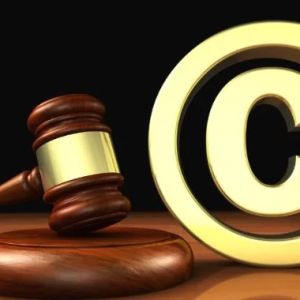- understanding-a-motion-to-dismiss-for-improper-venue
- the-legal-basis-rule-12b3-and-venue-law
- why-a-party-might-file-this-motion
- real-case-example-how-improper-venue-played-out
- how-courts-decide-if-a-venue-is-improper
- what-happens-if-the-motion-is-granted-or-denied
- need-venue-guidance-central-texas-employment-lawyers-can-help
1. Understanding a Motion to Dismiss for Improper Venue
A motion to dismiss for improper venue is a formal legal request asking the court to throw out a lawsuit because it was filed in the wrong geographic location. In civil litigation, where a case is filed matters—a lot. The right venue ensures fairness, efficiency, and adherence to the rules of civil procedure.
When a defendant believes the case was filed in the wrong federal district court or inappropriate state jurisdiction, they may challenge that decision through this specific motion. It’s a procedural step, but one that can drastically impact how—and where—a case proceeds.
2. The Legal Basis: Rule 12(b)(3) and Venue Law
2.1 What Is Rule 12(b)(3)?
Under the Federal Rules of Civil Procedure, Rule 12(b)(3) allows defendants to request dismissal of a case due to “improper venue.” This motion must be filed early—typically before or alongside the defendant’s first formal response to the complaint.
2.2 How Venue Is Determined
Venue refers to the geographic location where a case is heard. In federal courts, proper venue is usually defined by where the defendant resides, where the events giving rise to the case occurred, or where property involved in the dispute is located.
2.3 Common Misconceptions
Many people confuse “venue” with “jurisdiction.” While jurisdiction refers to the court’s authority over parties and subject matter, venue relates to which court—within the broader system—is the most appropriate place for the trial.
3. Why a Party Might File This Motion
3.1 Strategy and Convenience
A motion to dismiss for improper venue can be a strategic move. Defendants may want the case transferred to a more favorable or convenient court. For instance, a Texas-based company sued in California might find local litigation more manageable.
3.2 Cost and Accessibility
Venue affects the cost of litigation. Having to travel across the country for hearings and depositions increases financial burdens—both for the defendant and their legal team.
3.3 Legal Leverage
Sometimes, challenging venue can give a party more time to prepare or force a settlement discussion. It can shift the playing field in subtle but significant ways.
4. Real Case Example: How Improper Venue Played Out
In a recent employment discrimination case, a former employee filed suit in a federal district court in New York, despite the fact that both the employer and the events in question were located in Texas. The defense attorney filed a motion to dismiss for improper venue under Rule 12(b)(3), arguing that the plaintiff had no ties to the New York venue.
The court agreed. The judge ruled the venue was indeed improper and dismissed the case—though it allowed the plaintiff to refile in the correct Texas jurisdiction. This saved the employer significant time and resources, and forced the plaintiff to reconsider the strength of their case.
5. How Courts Decide If a Venue Is Improper
5.1 Examining the Complaint
Judges will closely read the complaint to see where the events occurred and whether any connection exists between the venue and the dispute. If there’s no strong tie, the venue may be deemed improper.
5.2 Defendant’s Supporting Evidence
The moving party must typically provide evidence—such as contracts, communications, or travel records—to prove that the case doesn’t belong in the selected court.
5.3 Options for the Court
If the venue is found to be improper, the court may either dismiss the case entirely or transfer it to a more appropriate venue under 28 U.S.C. § 1406(a). Judges often choose the latter to avoid restarting the legal process.
6. What Happens If the Motion Is Granted or Denied?
6.1 If Granted
A granted motion to dismiss for improper venue can either end the case (without prejudice) or shift it to a new venue. This resets the timeline and may complicate litigation strategy for the plaintiff.
6.2 If Denied
If denied, the case moves forward in the original venue. However, the denial is often accompanied by judicial commentary that shapes how the rest of the litigation proceeds.
6.3 Appealing Venue Decisions
Venue decisions are generally not appealable until after the final judgment. That’s why getting it right the first time is crucial—for both sides.
7. Need Venue Guidance? Central Texas Employment Lawyers Can Help
Understanding what a motion to dismiss for improper venue truly means requires more than a Google search. It's a procedural tool, yes—but also a gateway to shifting the power dynamics of a legal battle.
If you’re facing a lawsuit in a questionable jurisdiction—or considering your options for filing—Central Texas Employment Lawyers can help. We specialize in procedural motions, employment law, and strategic litigation planning. Whether you’re the plaintiff or defendant, we’ll help ensure your case is positioned in the most advantageous venue possible.




